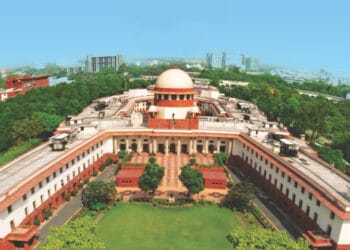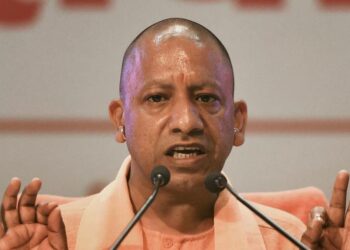The fixed tenure granted to the heads of investigative agencies would aid in the expeditious disposition of cases and the reduction of pendency, said Minister of Personnel Jitendra Singh in his response to a debate on the Central Vigilance Commission (Amendment) Bill, 2021, and the Delhi Special Police Establishment (Amendment) Bill, 2021.
The two proposals, which aim to replace the ordinances issued last month, were eventually approved separately in Lok Sabha by voice vote. The changes proposed by the opposition were rejected.
During the discussion, members of the opposition asked that the legislation be withdrawn, claiming that doing so would render the two agencies “subordinate” to the government.
Singh stated that the terms of the CBI and ED directors have not been extended, but have been set for a maximum of five years and a minimum of two years to guarantee that the positions are not abused.
He went on to say that the adjustments were made to guarantee that the investigation of the cases remained “stable” under their supervision.
“There will be consistency and stability. Certain information that is confidential with the director of an investigating agency will be kept with him until the cases are resolved. This will address the issue of case pendingness, “Singh stated.
According to the minister, the Federal Criminal Police Office of Germany has an average tenure of 6-10 years but no fixed term, the Australian Federal Police has a tenure of seven years with an extension clause, and the Royal Canadian Mounted Police has no fixed term but an average tenure of 4-10 years.
In response to a query regarding proposing ordinances, Singh stated that there were concerns about the functioning of Parliament because the last session was a washout.
“We needed to go on with our lives. We couldn’t wait for the protest to die down since this is the provision that will represent India’s image in foreign forums. So that is the country’s urgency “He stated. He stated that the changes to the two laws were required for India to reach global standards.
According to Singh, the Financial Action Task Force (FATF) has urged that certain nations look towards enhancing their capacities, and law enforcement authorities maintain high professional standards.

He also refuted the opposition’s claim that the move would reduce transparency in the operation of investigative agencies, stating that the CBI director is appointed by a high-level committee composed of the Prime Minister, Leader of the Opposition (or the leader of the largest opposition party in Lok Sabha), and the Chief Justice of India. The opposition slammed the government’s decision, calling it “arbitrary” and devoid of rationale. “We have made one little step to address all of these issues, and we will be doing more, and we expect cooperation on them as well,” Singh stated in response to NCP member Supriya Sule’s worries.
Manish Tewari, a Congress member, had already moved a statutory motion against the ordinances, calling them “arbitrary, capricious,” and an “exercise of authority.”
Before the promulgation of the two ordinances, the directors of the CBI and the ED had a set tenure of two years from the date of their appointment, in accordance with Supreme Court directions in the famous Vineet Narain case.
The ED director is selected by the central government on the suggestion of a commission led by the Central Vigilance Commissioner and comprised of Vigilance Commissioners, the Home Secretary, the Secretary of the Department of Public Prosecutions, and the Revenue Secretary.
The set term of two years was intended to ensure that the chiefs of the CBI and ED operate free of government influence and without fear of repercussions for the investigations they conduct.
Also Read: More and more Junior Doctors are on the road, yet no assurance by the government












